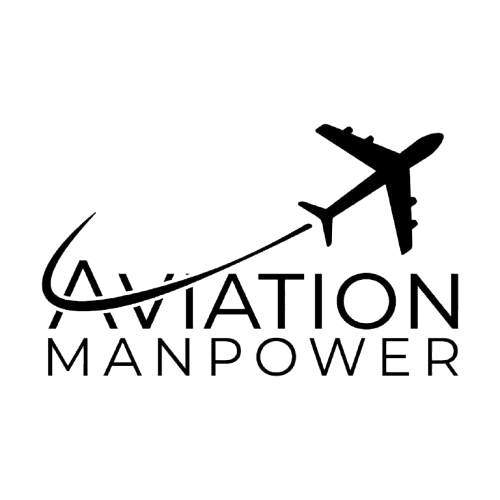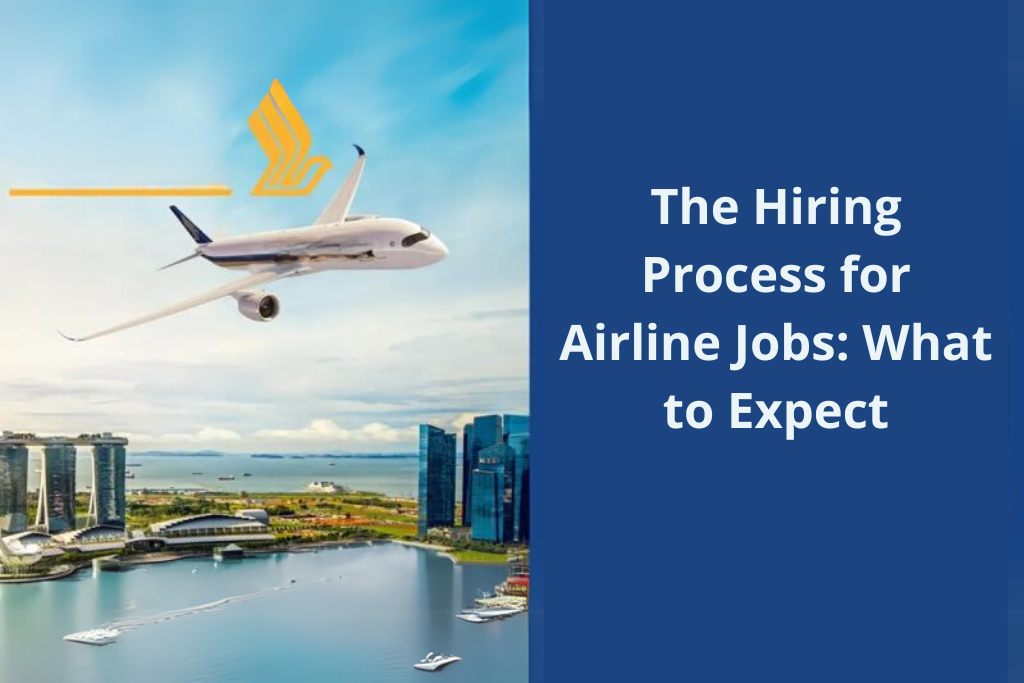Introduction:
Pursuing an aviation career is a thrilling goal, but landing that coveted airline job requires more than just passion. Whether you’re aiming to become a flight attendant, pilot, air traffic controller, aircraft maintenance engineer, or airport operations manager, you’ll need to understand how the hiring process works. It’s structured, competitive, and increasingly digitized.
Aviation job recruitment agencies and airline HR teams look for specific traits, qualifications, and readiness throughout each stage of hiring. Yet, many candidates walk in blind, missing out due to small mistakes or lack of preparation.
That’s why understanding what to expect can make all the difference. From crafting the perfect application to navigating interview panels and psychometric tests, this guide walks you step-by-step through the airline hiring process. We’ll also discuss the growing role of specialized aviation recruiters, how they can help streamline your journey, and how to ensure you’re not just qualified but outstanding.
Whether you’re applying to commercial airlines, private jet operators, or ground service providers, this article is your flight plan to success.
Step 1:
Before you apply, it’s crucial to know what each job demands. Airline roles vary widely—from customer-facing cabin crew positions to behind-the-scenes maintenance or air traffic control jobs.
Typical Requirements Include:
- Educational background: Varies based on the role (e.g., college degree for ATC or commercial pilots).
- Certifications: FAA, EASA, ICAO licenses or equivalents.
- Experience: Flight hours for pilots, customer service for crew, and technical experience for engineers.
- Medical fitness: For flight and safety-sensitive roles.
- Soft skills: Communication, teamwork, problem-solving.
Pro tip: Choose the path that best suits your strengths and long-term ambitions. Not sure where to begin? Read our guide on How to Choose the Right Aviation Career Path for You to discover roles that fit your personality and goals.
Step 2: Application and Resume Submission
Once you’ve chosen your ideal role, the application stage begins. Airlines post openings on their official websites, industry job portals, and through aviation job recruitment agencies.
Best Practices:
- Tailor your resume to each role.
- Highlight certifications and experience.
- Use aviation-specific keywords to pass ATS (Applicant Tracking Systems).
- Keep documents clean, professional, and free of jargon.
If you’re working with one of the best aviation recruitment agencies, they’ll often review your materials, optimize your resume, and even advocate for you during the pre-screening process.
Step 3: Initial Screening & Contact
After applications are reviewed, shortlisted candidates go through an initial screening process. This is often a phone or video interview conducted by HR or a recruiter.
You’ll be asked questions like:
- Why do you want to work for this airline?
- How do you handle pressure?
- Describe a time you solved a difficult situation.
This is where aviation recruiters can make a difference. Many will prep you beforehand, sharing insights about the company’s culture and typical interview themes.
Step 4: Technical & Behavioral Assessments
If you pass the initial round, expect a mix of:
- Aptitude tests (math, logic, verbal reasoning)
- Situational judgment tests
- Group exercises (especially for cabin crew roles)
- Sim assessments (for pilots)
Behavioral interviews are also common. You’ll be evaluated for how well you work in teams, manage stress, and align with airline values.
Want to master this stage? Learn from the pros in What Recruiters Want: How to Get Noticed by Aviation Headhunters. It includes tips on how to approach both technical and soft skill-based questions.
Step 5: Medical Evaluation
Before a job offer, candidates often undergo:
- General health screenings
- Drug and alcohol tests
- Vision, hearing, and mental health assessments
This is mandatory for safety-sensitive positions like pilots, cabin crew, and air traffic controllers. It’s wise to check the medical requirements of the job early, so you’re not surprised later.
Step 6: Background and Reference Checks
If you’ve made it this far, you’re in the final stage. Airlines will now verify:
- Past employment
- Criminal background
- Educational credentials
- License authenticity
Some carriers also request references from previous employers. A clean, verifiable record can expedite the offer process.
Step 7: Offer Letter & Onboarding
Once cleared, you’ll receive a conditional or final offer. It usually outlines:
- Salary and benefits
- Training requirements
- Relocation assistance (if applicable)
- Probation period
The onboarding process includes, following:
- Orientation
- Security clearances
- Uniform fittings
- Start of formal training
If you’re aiming to join one of the expanding carriers in the near future, check our blog on Top Airlines Hiring in 2025: Who’s Growing and Where for the most up-to-date hiring trends and where to focus your efforts.
What’s Unique About Air Traffic Control & Maintenance Hiring?
While most roles follow the above format, there are exceptions.
Air Traffic Control:
The hiring process is more centralized and competitive. You’ll need:
- Government-issued certifications (e.g., FAA AT-SAT, or region-specific)
- Multi-step exams and simulations
- Psychological evaluations
Read more in our Career Guide: Becoming an Air Traffic Controller for a detailed roadmap.
Maintenance Technicians:
These candidates often undergo practical tests and skills demonstrations. Having an FAA A&P or EASA Part-66 license is essential, and previous aircraft type ratings can be a major advantage.
Why Work with Aviation Recruiters?
Aviation recruiters and staffing firms don’t just send your resume—they help you stand out. Whether you’re targeting regional airlines, cargo operators, or international carriers, working with aviation job recruitment agencies offers:
- Faster access to unlisted roles
- Resume and interview coaching
- Negotiation support
- Long-term career planning
The best aviation recruitment agencies are also tuned into emerging roles and industry shifts, helping you pivot or level up faster than going it alone.
How to Stay Competitive in a Rapidly Evolving Industry
The aviation industry is evolving fast—technological innovations, automation, and sustainability initiatives are reshaping how airlines hire and operate. If you want to remain competitive, you need to go beyond the basics and embrace lifelong learning and adaptability.
Tips to Stay Ahead:
- Pursue Certifications Regularly: Staying certified in current aircraft, software systems, or safety protocols gives you a sharp edge. To identify valuable credentials, check out our guide on Best Certifications to Boost Your Aviation Career.
- Follow Industry News: Be aware of how global events, fuel costs, passenger demand, and policy changes are impacting aviation hiring trends.
- Stay Tech-Savvy: Learn about emerging tools in flight ops, maintenance software, and AI in aviation. Knowing how automation is changing roles can help you stay employable in a digitized future.
- Work on Soft Skills: Emotional intelligence, cultural awareness, and adaptability are now just as important as technical qualifications, especially for passenger-facing roles.
- Network Proactively: Attend aviation career expos, webinars, and trade shows. Being visible and engaged keeps you top of mind with both employers and recruiters.
By proactively sharpening your skills and staying in tune with industry demands, you’ll position yourself not only as a good hire but as a future leader in aviation.
Conclusion:
The airline hiring process may feel complex, but with preparation and the right support, it becomes manageable—and even exciting. From submitting your first application to receiving that offer letter, every stage is a chance to showcase your skills, commitment, and passion for aviation.
By aligning your strengths with job demands, utilizing career tools, and leveraging industry recruiters, you can significantly improve your chances of success.
Aviation is more than a job—it’s a calling. And once you’re on the right path, the sky isn’t the limit—it’s just the beginning.
FAQs
1. How long does the airline hiring process typically take?
It varies, but the process can take anywhere from 4 to 12 weeks, depending on the role and airline.
2. Do I need a recruiter to apply for airline jobs?
Not necessarily, but working with aviation recruiters can give you insider access, coaching, and stronger positioning.
3. Are medical evaluations required for all airline jobs?
Only for specific roles like pilots, air traffic controllers, and cabin crew. Ground roles may have less stringent requirements.
4. What documents should I prepare in advance?
Updated CV, certificates/licenses, ID/passport, reference letters, and background check consents.
5. How do I improve my chances of passing the assessment center?
Practice group exercises, understand the airline’s values, and work on communication, leadership, and problem-solving skills.

